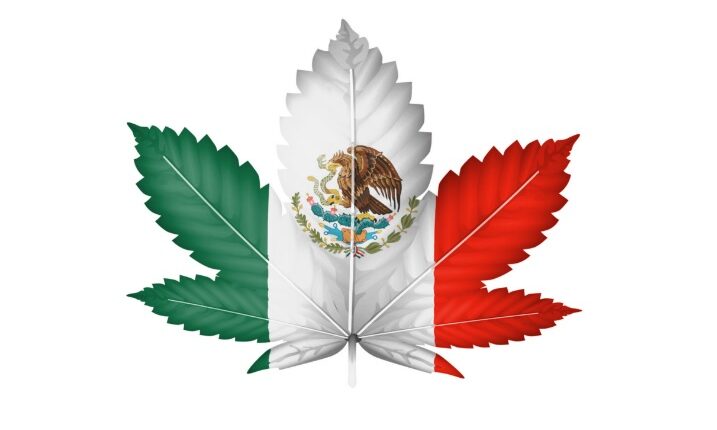
Xebra Brands Obtains First-Ever Authorization To Commercialize Cannabis Products In Mexico
It’s been a long time coming, but an application process started in 2018 has yielded historic dividends for Xebra Brands Ltd. (CNSX: XBRA). Today, it was revealed that the Mexican Health Regulatory Agency (COFEPRIS)—the domestic equivalent to the U.S. FDA—has granted to Xebra’s wholly owned Mexican subsidiary Desart MX, SA de CV (Xebra Mexico) full-spectrum approval to commercialize low-THC cannabis in Mexico. It’s a privilege no other company has obtained, giving the company literal first-mover advantage to setup cannabis operations in los Estados Unidos Mexicanos.
The authorization brings finality to a December 2, 2021, decision which saw all five Supreme Court justices vote unanimously in favor of granting Xebra Mexico an irrevocable injunction to commercialize cannabis. The final leg of the journey—which began on November 29, 2018 when it first applied for licensing—was for COFEPRIS to provide formal authorization. With that process now complete, Xebra Mexico is the only company authorized to commercialize cannabis outside of a strict medical parameter,
Specifically, the authorization gives the company the ability, among other things, to import and acquire cannabis seeds, cultivate and harvest cannabis, process and produce cannabis, and sell cannabis products. And it bears repeating: this cannabis authorization is without legal precedent in Mexico.
This represents an important moment for cannabis globally with the first ever grant for full cultivation, harvesting, processing and commercial activities to a corporate entity in Mexico. This grant follows years of hard work and focus by a devoted team and is only the beginning of what Xebra has laid as the foundation for growth. The path is now clear for Xebra to continue forward to unlock the commercial opportunities that exists.
Jay Garnett, CEO of Xebra Brands
Somewhat parallel to hemp provisions in the Farm Bill, the authorizations applies specifically to the commercialization of cannabis products with low-levels of THC (under 1%); oils such as CBD, CBG, CBN and other low-THC cannabinoids and certain uses of the cannabis flower. It also includes a provision that legalizes the cultivation, processing, and sale of low-THC hemp.
Under the Farm Bill, low-THC hemp is defined as any part of the hemp plant with a THC concentration of no more than 0.3 percent. Hemp with a higher THC concentration is still considered a controlled substance and is illegal under federal law, outside of medical applications.
Whereas the Farm Bill was a comprehensive legislation that set regulations for an entire industry, the COFEPRIS authorization applies exclusively to Xebra Brands. Any other company striving to obtain similar authorization will be required to proceed through the same lengthy process Xebra Brands just completed, giving it a material runway over potential competitors.
Currently, only medical cannabis in permitted for sale at a retail level in Mexico. Under the law, medical cannabis can be prescribed by authorized healthcare professionals, and patients can access it through licensed pharmacies. To be eligible for medical cannabis, patients must have a medical diagnosis and prescription from a healthcare professional authorized by the Mexican Ministry of Health.
Xebra Brands Plans To Monetize Its Exclusive Authorization
As present, full details on monetization efforts are premature. In the press release, Xebra Brands eludes to taking “a methodical approach to assessing all opportunities for partnership and growth that have been presented to it.” Ergo, the company will assess the partnership and/or joint venture opportunities that will surely come its way, as the only authorized cannabis producer in Mexico. It is first-mover advantage in the classic sense.
The first-mover advantage is a phenomenon in business where a company that enters a market first gains a significant advantage over its competitors. This advantage can manifest itself in several ways, including the ability to establish brand recognition and customer loyalty, the opportunity to create a network of suppliers and distribution channels, and the ability to control pricing.
In a highly regulated industry such as cannabis, the benefits of first mover advantage can be even more significant due to the additional barriers to entry that regulations create.
For example, companies can navigate regulatory approvals, establish relationships with regulators and secure intellectual property protections. These are highly important benchmarks companies must achieve to achieve the access needed to infiltrate a market with numerous restrictive barriers.
How Xebra Brands capitalizes on this unprecedented opportunity is a conversation for another day. In the greater scheme, Mexico regulators have bestowed their first cannabis authorizations for commercial purposes, as the birth pangs of a burgeoning non-medicinal cannabis market rest firmly in view.



